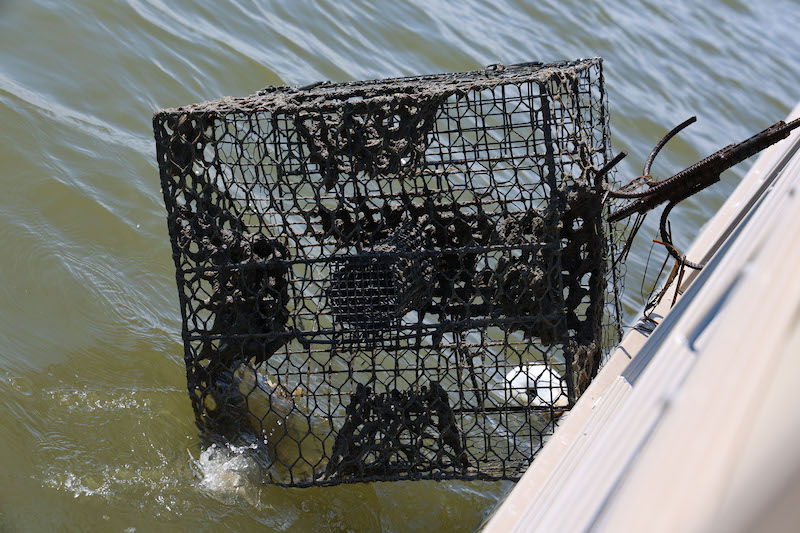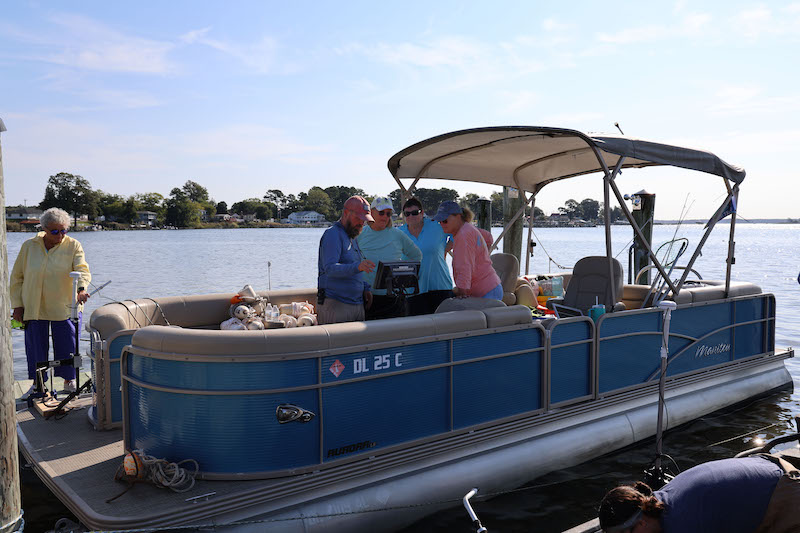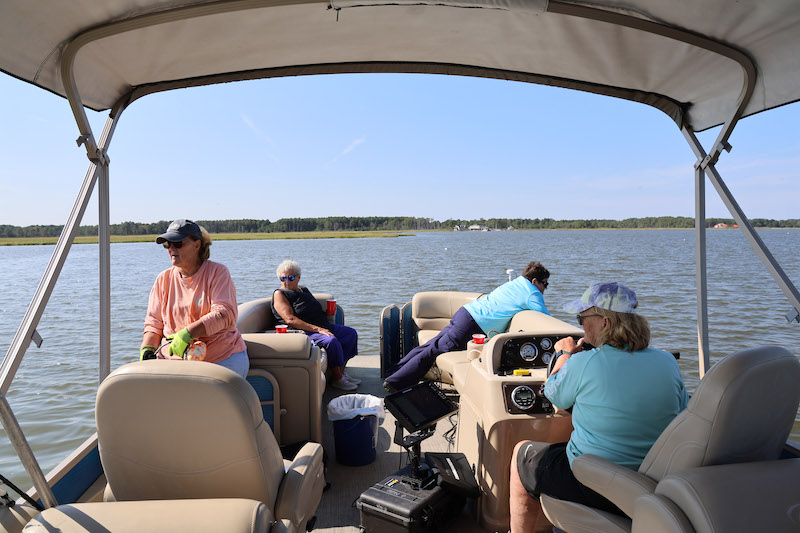


Crab pot cleanup
Photos by Monica Moriak November 18, 2025
Local volunteers help UD’s Delaware Sea Grant clean up the Indian River
On a sunny day in late September, songs from Earth, Wind and Fire drifted from the sound system of Gail Kelso’s pontoon boat as she and her three close friends volunteered with the University of Delaware to collect lost or abandoned crab pots in the Indian River.
The volunteer effort was part of continued work by UD’s Delaware Sea Grant to identify or collect lost or abandoned crab pots throughout Delaware waterways. These pots pose both environmental and navigational risks as they litter the seafloor, damage boat propellers and trap marine life.
The event was led by Brittany Haywood, coastal ecology specialist, and Art Trembanis, professor in UD’s School of Marine Science and Policy. Fifty volunteers, including UD students, faculty and staff, members of the Delaware Center for the Inland Bays, the Delaware Department of Natural Resources and Environmental Control (DNREC), and the general public scooped 120 crab pots out of Indian River, which is the most ever pulled out of a waterway during an event.

Leaving out of Warwick Park in Millsboro, Mary Ann Varner, Mickey Nagle and Kathy Ellis joined Kelso on her boat. The friends, all in their 70s, have a shared goal of keeping the Indian River clean.
“It was a fun day,” Kelso said. “We brought food, we brought beverages, we sang, we played Earth, Wind and Fire, and we just had a great time. We were the senior citizens out there, but it was great fun.”
Haywood said it was the first time that a crab pot roundup event hosted an all-female crew.
Kelso’s 24-foot pontoon boat gathered a few battle scars from the grappling hooks tossed over the side to snag the pots. After learning how to use sonar from UD experts, Kelso and her friends spent the day going back and forth back trying to locate the pots.

By the end of the event, they had successfully pulled 10 pots from the river.
“We were disappointed we didn't catch more,” Kelso said. “But we had a couple of them that just fell apart as we tried to bring them up. It took a couple of us to bring some of them up because they were so encased in the mud. That was tough work, but we were very excited that we got 10.”
Kelso, who grew up in Millsboro and has spent her life crabbing in local waters, said the program is important to her personally and for the health of Delaware’s waterways.
“I worry about what will happen to the river if we don't take care of it,” Kelso said. “I was amazed that there were so many crab pots in just this one little area and how that is impacting the ecosystem and the environment. Volunteering was just a way to give back. That was my motivation and the motivation of everyone on the boat. We wanted to give back and do a little something to get those pots out of there.”
Haywood said that Delaware Sea Grant is always looking for volunteers, known as Trap Trackers, to help locate and identify lost and abandoned crab pots.
“We are always looking for volunteers, especially on the mapping side,” Haywood asid. “We're trying to find folks who are interested in using mobile mapping units to go out and map the bottom habitat to find these pots — and that can happen outside of the events. I'm also interested in folks who find pots and remove them on their own. If someone's out there already and they ran across something and pulled it up and it doesn't have an ID, folks should feel free to submit that data.”
For information about future crab pot round up events, visit the Delaware Sea Grant website.
Contact Us
Have a UDaily story idea?
Contact us at ocm@udel.edu
Members of the press
Contact us at mediarelations@udel.edu or visit the Media Relations website

